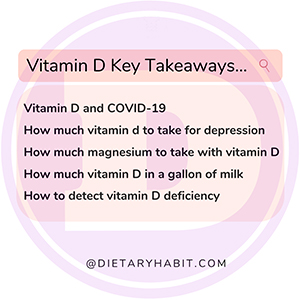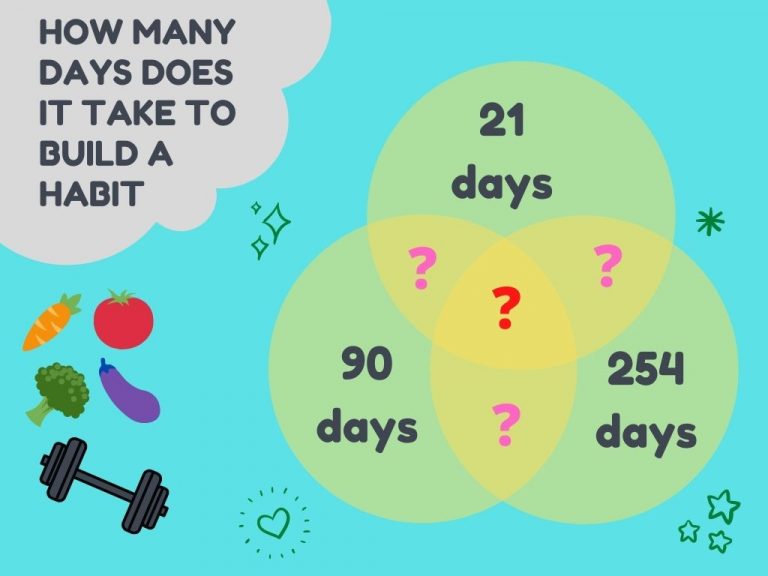Why Vitamin D Is Gaining tremendous Importance These Days

Vitamin D has become a hot topic again in these days of the COVID-19 pandemic due to its diseases prevention capabilities and contribution to adaptive immunity. Everyone in the scientific world is discussing the newly-discovered and potential role and importance of vitamin D. Though adult people don’t need to worry about vitamin D deficiency usually, it’s gained massive attention due to the deep association of vitamin D with COVID-19.
People of some countries in the northern latitude are at high risk of vitamin D deficiency due to insufficient exposure to sunlight. Analysis of collected data from the National Health and Nutrition Examination Survey that includes different ethnicities and races suggests that 41.6% of adult Americans suffer from vitamin D deficiency. And the percentage is exceptionally high in black American and Hispanic people, amounting to 82.1% and 69.2%, respectively.
What Is The Sunshine Vitamin
Vitamin d is a fat-soluble vitamin, easily absorbed through the fatty transport system. Vitamin D is sometimes called the sunshine vitamin because our body produces them with the help of sun rays received in the skin. More specifically, the ultraviolet rays in the sun’s shining cause the provitamins stored in the skin to convert into cholecalciferol, the precursor of active vitamin D.
Then it goes to the liver and then kidney to form the active form of vitamin D, Calcitriol. Without the bright shinings of the sun, the process of vitamin D preparation will halt immediately. Vitamin D is produced best at noon when sunshine is intense with more concentration of UV rays. Nowadays, it’s hard to get sunshine vitamins due to urban people being confined to houses and offices. It’s a matter of worry as this habit can form various diseases. At least spend some time at noon and get vitamin D at the quickest possible time.
Why Vitamin D Is Important
Vitamin D boosts immunity to a great extent if your body produces it at the right amount. It activates the T-cell and antigen rich cells to protect our body from exogenous microorganisms. Vitamin D contains two of the most influential factors to prevent diseases overall: anti-inflammatory function and immunoregulatory properties. So, if vitamin D deficiency occurs, some infections like pneumonia, tuberculosis, asthma, viral diseases, and other chronic diseases start to attack the respiratory system.
If your body lacks vitamin D concentration, an inflammatory mechanism named “cytokine storm” increases significantly. Increased cytokines are harmful as they damage the cells and tissue of our body and spread the inflammation widely.
Cytokine is a protein that is an essential part of our overall immunity. Vitamin D, a steroid hormone, controls gene expression and influences protein production in your body. And proteins are the stronghold in protection against various diseases.
Vitamin D also maintains some vital parts of our body, including muscles, teeth, and bones. Due to vitamin D deficiency, adults may suffer from osteomalacia and other bone diseases, and the child may suffer from rickets.
Vitamin D carefully curates the concentration of calcium and phosphate in the blood, which helps maintain normal muscle tone, nerve conduction, mineralization of bones, resorption of bones, etc. Moreover, vitamin D helps produce sufficient insulin to keep diabetes at bay and control it. It also aids in maintaining a good heart with reduced stress.
How Vitamin D Is Associated With COVID-19
The relation between COVID and calcitriol has been the talk of the town in this pandemic period. Recent researches show that vitamin D plays a vital role in preventing respiratory system diseases. Many research papers suggest strong interlinks between vitamin D deficiency and COVID-19. Almost 80% of COVID-19 patients are found with a low level of vitamin D. According to research carried out in India, vitamin D deficiency is significantly related to the increased severity of COVID-19.
As we know already, vitamin D prevents respiratory infections it reduces the risks of the onset of pneumonia in Covid patients. A randomized controlled trial strongly suggests that vitamin D supplementation can enhance lung functions by defending pathogens.
How Much Vitamin D Should I Take For Depression
Studies suggest that depression is associated with a lower level of vitamin D. If you have a lower concentration of vitamin D for a prolonged period, you may grow symptoms of depression. 400-800 IU of vitamin D is sufficient to keep depression at bay. A study on two groups of healthy people is done to find the effects of two different doses of vitamin D, 400 IU and 800 IU. The study shows that 400 IU D/day keeps their mode high, whereas 800 D/day doesn’t significantly impact them.
Intake of a minimum of 400 IU D/day of vitamin D with calcium supplementation enhances your mental health and ward depression and sadness off your life. Calcium is needed for the proper absorption of vitamin D through the intestine. You may take 1000-4000 IU of vitamin D per day to maintain optimal blood vessels. However, consuming 4000 IU of vitamin D is harmful and should be avoided as it can form some nasty diseases, including stone formation.
However, it’s still a hypothesis that vitamin D has significant effects on depression. A year-round study done on 250 females show that vitamin D supplementation doesn’t significantly change the mood scores if you consider the seasonal effects. More researches are underway. As time passes, we’ll know the underlying mechanisms of vitamin D effects on depression.
How Much Magnesium To Take With 5000 IU Vitamin D
Vitamin D won’t function properly if your body lacks magnesium. Magnesium acts as an essential cofactor for the enzymes associated with calcitriol production. So if you’re suffering from magnesium deficiency, you’ll soon suffer from vitamin D deficiency. If you increase vitamin D intake, you’ll need more magnesium to produce active calcitriol.
Consuming 5000 IU vitamin D is permissible under certain conditions, and it should be in accordance with your doctor’s advice. Though the safe upper limit is 4000 IU D/day, 5000 IU D/day is recommended nowadays during this COVID pandemic. Everyone now understands their importance and hence, the correction unofficially. But if you consume 5000 IU vitamin D, how much magnesium should you take with it?
Magnesium supplements shouldn’t cross 350 mg/day though the recommended magnesium intake is 300-400 mg (For men: 400-420 mg/day, for women: 310-320 mg/day). Magnesium supplements of more than 350 mg can cause toxicity as we take magnesium through other sources like foods and beverages.
If you’re taking 5000 IU vitamin D per day, you should take 300-400 mg magnesium with it to balance calcitriol production. However, some people can tolerate more doses of magnesium. If you can tolerate magnesium in more quantities, it’ll be okay to take it under the doctor’s advice. You can figure out the limit by slightly increasing the amount daily. You’ll develop diarrhea, nausea, and maybe muscle cramps at the highest tolerable limit of magnesium intake.
If necessary, slowly increase the amount of magnesium until you feel nausea or have diarrhea. Then stop increasing the amount, which will be the safe upper limit for you.
How Much Vitamin D Is In A Gallon Of Milk
Are you thinking to build a habit of drinking fortified milk to get an excellent combo of calcium and vitamin D? Then you’ve chosen the best option to keep your body properly functioning. Vitamin D helps in calcium absorption from the intestines. Though vitamin D isn’t found naturally on cow milk, manufacturers add them to enhance the functioning of calcium. Moreover, milk is regarded as a balanced diet containing all the proximate principles of food.
It’s one of the best options to buy a carton of a gallon of milk to get them fresh and flavorful. However, among the options buying a gallon size milk can help you chug them for a longer period. And the gallon size packages are more available in the stores. So do you want to know how much vitamin D is in a gallon of milk?
The Food and Drug Administration (FDA) approve certain limits of vitamin D to cow milk and plant-based milk. In 100 grams (3.5 ounces) of milk, manufacturers can add up to 84 IU of vitamin D3 to cow milk. Plant-based milk contains the same amount, 84 IU of vitamin D2.
Different types of fortified milk are available in the stores, including whole milk, nonfat milk, raw cow’s milk, goat’s milk, almond milk, etc. 1-cup (237 ml) serving of whole milk contains 98 IU of vitamin D. However, cow’s raw milk doesn’t have any trace amount of vitamin D.
A gallon of milk contains 1568 IU of vitamin D, which can suffice your sunshine demand for almost three days (600 IU is the recommended level of vitamin D).
In correspondence to the data of FoodData Central, a gallon of different kinds of fortified milk contain these amounts of vitamin D in the International Unit.
- A gallon of whole milk contains 1568 IU of vitamin D3
- A gallon of 2% milk contains 1680 IU of vitamin D
- A gallon of 1% milk contains 1568 IU of vitamin D
- A gallon of nonfat milk contains 1600 IU of vitamin D
- A gallon of soy milk contains 1712 IU of vitamin D2
- A gallon of almond milk contains 1568 IU of vitamin D2
How To Detect Vitamin D Deficiency Symptoms
Though vitamin D deficiency isn’t common in sunny countries, subclinical vitamin D deficiency is pretty prevalent in the far north. If you’re in the northern latitude, you should maintain a vitamin D rich diet and ensure vitamin D supplements if necessary. Check these symptoms for vitamin D deficiency. If you’re developing these symptoms, you need to consult a doctor immediately and modify your diet. Vitamin D deficiency symptoms can’t be distinguished easily due to vagueness in signs and symptoms.
- Fatigue and weakness
- Hair loss
- Frequent cough and sneezing
- Delayed wound healing
- Frequent attacks of various diseases
- Lack of interest in work
- Depression
- Pain in muscles
Consult a physician and assess the vitamin D levels in your blood. The laboratory investigations will give you a clear picture of vitamin D deficiency.
Last Words
Vitamin D deficiency can lead to a lot of troubles in your life. Prevention is far better than cure. So building a healthy lifestyle can prevent you from lots of money and time-wasting diseases. Curate your diet chart with lots of fruits and vegetables, stay at least for some time in the sunlight, and regularly check up on your health status. As COVID-19 doesn’t seem to go away soon, you can take vitamin D supplements to prevent the severity of the disease.

